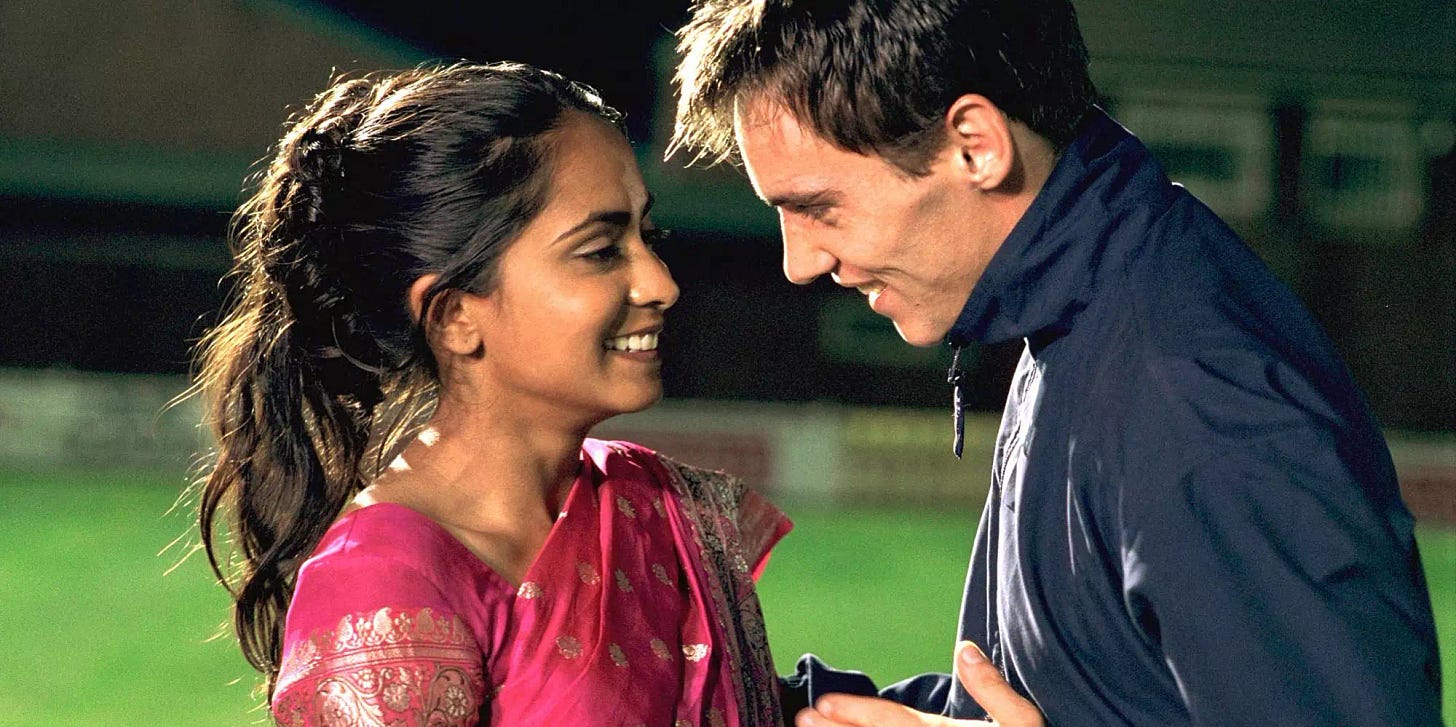It's Just Emotional Truth That's Taken Me Over
Would everything be okay if Hasan Minhaj did in fact suffer all those things?
Many people are mad at Hasan Minhaj right now for embellishing/fabricating some of the most resonant bits in his comedy career, from something about how his daughter nearly got anthrax-ed by the Saudis to an FBI agent infiltrating his childhood mosque to not being able to go to prom with a white girl because of her racist parents. As far as celebrity scandals go, this one is pretty uninteresting on the surface level since Minhaj’s comedy hasn’t mattered much since around 2018 and his Netflix show was cancelled all the way back in 2020. Rumor has it that he may be the next Daily Show host, but who cares?
However, the two strains of anger against him are intriguing. So you’re mad at Hasan Minhaj. But why? If he were 100% telling the truth about all his stories, would that change anything? Some have always disliked him for being yet another clapter comedian (i.e. one who prioritizes moralistic storytelling—with narratives that cater to the tastes of metropolitan culture-focused progressives), but couldn’t he at least not lie about his maudlin anecdotes? Their anger at him and his ilk are about a whole genre of comedy, which is just a subset of an entire cultural sensibility that believes s/he who suffers most is the most deserving of the spotlight. Yet there’s another type of backlash against him, not for embodying a hated type of culture, but for failing to be sufficiently downtrodden enough to warrant his success.
Though these two sides may be temporarily united in anger, there are legitimately diverging interests between them. An artistic culture that thrives on victimhood narratives will benefit certain groups more than others, depending on what the criteria for approved hardships are. Books like Elite Capture by Olufemi Taiwo and How Elites Ate the Social Justice Movement by Freddie deBoer have begun to mainstream the idea that popular conceptualizations of social justice are just reflections of intra-elite squabbles, whether they be along lines of race, gender, or sexual orientation.
Of course, what’s always missing is class, for a multitude of reasons, but primarily because the culture industries have become thoroughly dominated by the well-educated and affluent (if not in actual financial assets, then certainly in aspirational mindset). For all their sectarian differences, this social class understands its commonality with each other and they certainly don’t want to cede ground to the lower classes whose tastes and beliefs they find embarrassing or repugnant.
One thing I wonder about with the likes of Minhaj is why he felt the need to lie. Apparently, in one of his specials, he talked about how he visited a Saudi embassy on the same day that Jamal Khashoggi was murdered when in fact, he’d visited the embassy a month earlier. That’s still pretty close! Why not just say the Khashoggi murder sparked immediate flashbacks of a visit that had happened just a few weeks ago? Or his prom date story. The truth, it turned out, was that his white female friend never said yes in the first place, having politely turned him down well in advance of the actual prom. But it’s not as if his pain of rejection, not to mention his racial insecurities, were negated because he actually didn’t endure a dramatic 180-degree rejection on the night of.
Maybe he did try out more truth-oriented versions of these bits and found that nobody cared, so he had to juice them up. But I also suspect there’s a persistent nagging anxiety among the current culture class that despite all their credentials, titles, and praise, they really don’t have much to say. Yet at the same time, their sense of entitlement and personal destiny require all the major plot points of the story to happen to them. Anything else would result in ego death.
The final segment of The New Yorker piece on Minhaj zeroed in on claims that his show, Patriot Act, treated some of its female staff, primarily the researchers and fact checkers, poorly. When the show had been cancelled, I remember seeing some tweets from South Asian American women who’d worked on the show saying how harrowing, even traumatic, the experience had been. True as those claims may be, I’ve also long been aware of a type of sibling rivalry that erupts in minority groups along gender lines when someone of their race but from the opposite gender breaks through into the mainstream.
Minhaj, along with Aziz Ansari and Kumail Nanjiani, was part of this mini-golden age in the second half of the 2010s of straight brown dudes making it big. Notably, they were all Muslim too. Jay Caspian Kang tweeted how ambitious minorities leverage oppression stories to advance their careers. And some stories carry more currency than others. When it comes to what’s buzzy about the South Asian American diasporic narrative, Hindu stories just don’t have the same cache; in the identitarian free market, Hindu stories are almost as devoid of moral capital as those of yellow Asians.
While I saw a lot of celebration among South Asian Americans for these guys, I also saw a lot of jealousy, especially from women regarding South Asian male characters pairing up with white women. Part of it was wholly justified (both Master of None and The Big Sick are god-awful and their protagonists’ fawning over white women is embarrassing), but there was a lot of hypocrisy too, because in instances where the whole gender-racial white-romance dynamic thing was flipped, like in a Mindy Kaling show or Bend It Like Beckham, the attackers would suddenly became defenders (and vice versa).
So whether The New Yorker intended it or not, I had to wonder if its gender-focused parts are going to be used to question not clapter culture itself, but simply its protagonists. Not only was Minhaj not enough of a victim, but he was categorically incapable of ever being as much of a victim as, say, his South Asian female counterpart. In essence, he’s an imposter of a man, playing a woman’s role. Even Minhaj’s now-infamous term, “emotional truth,” is the type of thing that men make fun of as an incorrigibly female idea. The irony is that its direct predecessor is “truthiness,” the Colbert-coined term that reflected the emotional truths of Bush, Rumsfeld, and all those Republican men (and their Democratic enablers) during the War on Terror era.
Society enjoys and covets victimhood more in women than in men. A woman can be a damsel in distress, a figure of both moral sympathy and erotic titillation in her helplessness. Her feminine worth is reflected in how many people rush to her aid. In contrast, no equivalent idea exists for a man. A male victim is just a feckless whiny loser, an object of sincere pity at best. Such a landscape may be one full of unfairness and rife with sexist stereotypes, but at least it’s familiar turf for women, and it makes sense why some of them may prefer this terrain for its home field advantage. Every cultural mode of expression has its own way of fulfilling or failing accepted masculine and feminine ideals. So the lingering question remains, is Minhaj’s crime that his type of comedy just sucks, or that he’s the wrong avatar in an otherwise correct system?






Will you end up reviewing Freddie deBoer's book? I like his substack but despite all his postering that he's been a leftist his whole life, I consider him a liberal and he has too much sympathy for identity politics.
He just reminds me of this type of white progressive who sometimes cares about class, but he spends more time on his niche cultural issues versus talking about class in any ongoing meaningful way. I learned about him on This is Revolution, a Black Marxist podcast, and Freddie just kept asserting that we have to be invested in these social issues AND class. He hasnt been invited back, so I imagine he's not sufficiently left for the show. And I agree; I think he's just a disgruntled white liberal.
Aside from that, I am fascinated by this. I only learned about him because women complained about their treatment on his show. But, like Aziz, I never engaged really engaged his content. I only watched Master of None when Lena Waite wrote the last season that was about her and her ex girlfriend. I checked out some other parts of the show, and didnt find it funny. (But he does narrate an audiobook which I greatly enjoyed).
I am not a fan of Mindy Kaling, and when I finally saw Late Night, I thought it was propaganda for white progressive multiculturalism and loathed it. And she ends up dating the racist white guy in the end.
Anyway. This was really interesting. I love all your posts!
"Minhaj...treated some of its female staff, primarily the researchers and fact checkers, poorly. When the show had been cancelled, I remember seeing some tweets from South Asian American women who’d worked on the show saying how harrowing, even traumatic the experience had been..."
Working as a fact checker in Manhattan was "traumatic"?? I wonder how they'd describe living through a war or famine? Wherever these women may have been born, once they become baptized in the Victim religion, they instantly become deeply, inescapably American.
And Hasan was just following the first rule of show business: Give the people what they want! His audience is upscale white liberals and their deepest emotional need is to hear tales of oppression and discrimination from brown people, as this gives them an S&M frisson of guilt and shame, but also leaves them feeling holy and absolved, or at least morally superior to those OTHER white people who "just don't get it".
You cannot become an elite American until you denounce the country, its history and at least half of its people and our smarter, well-educated immigrants know this better than anyone.